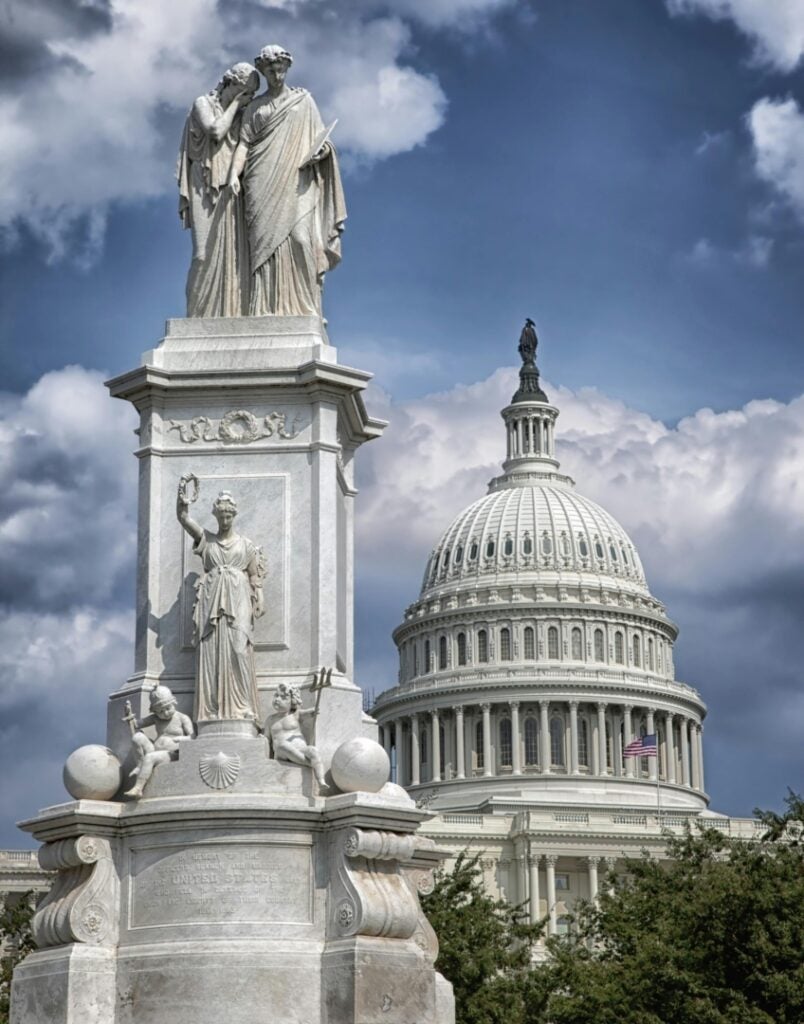
As Washington D.C.’s regulatory landscape around cannabis continues to evolve, the District’s “cannabis gifting” economy faces an uncertain future.
Benzinga Cannabis spoke with Grace Hyde, director of Commercial and Production Operations at District Cannabis and co-chair of the Regulated Cannabis Association of DC. Hyde shared her perspective on the recent efforts to crack down on this sui generis cannabis economy and its broader implications.
A Loophole On The Brink Of Closure
The gifting situation came about as the result of the District’s regulatory status; D.C. is not a state and therefore Congress holds oversight over its laws. As such, Congress has persistently blocked the establishment of a regulated retail market each time it came up for a vote, despite recreational cannabis having been legalized by voters in 2014 under Initiative 71. Thus the loophole in which shops began gifting cannabis as part of transactions involving other goods or services.
This workaround thrived for years, enabling hundreds of businesses to sell marijuana products without directly violating the law. Now, a wave of enforcement threatens to end it.
An earlier bill requiring owners of shops that gifted cannabis to transition into licensed medical cannabis dispensaries “opened up a lot of licenses so that all of these illegal stores could get a license and become legal. It has taken until now for the enforcement section to kick in. A lot of people have applied to become licensed, but not that many are really making their way through the application process,” Hyde explains.
- Get Benzinga’s exclusive analysis and the top news about the cannabis industry and markets daily in your inbox for free. Subscribe to our newsletter here. If you’re serious about the business, you can’t afford to miss out.
The Impact Of Enforcement
Earlier this year, the D.C. Council approved new legislation granting the Alcoholic Beverage and Cannabis Administration (ABCA) the authority to shut down unlicensed cannabis shops. After a grace period, authorities began padlocking.
So far, there have been four shop closures, said Hyde, out of an estimated 200 – many operating in plain sight. Hyde admits she was initially skeptical about whether the crackdown would succeed.
“We didn’t believe they would actually close the stores until the first closure happened because so many things have gotten in the way. We’ve been advocating for this for close to a decade, so we had a hard time believing it until it actually happened,” she told Benzinga.
Despite the slow start, Hyde remains hopeful that the closures will drive business back to the regulated market and ultimately improve the balance sheets of medical cannabis business, which she admits, are barely making ends meet. Something similar happened in New York recently.
“We haven’t seen the benefits of the crackdown yet. It’s only been three weeks, but we’ll start to see a shift in revenue from the illegal market to the legal market soon,” Hyde said.
Unregulated Products And Public Safety
One of the main concerns driving the crackdown is the lack of regulation of products sold in the gift shops. According to Hyde, many of these shops buy cannabis from other states, leading to safety and traceability risks.
“It’s not homegrown cannabis. They’re purchasing cannabis from across the country—California, Oregon, Maine, Michigan,” Hyde said. “The products being sold at these establishments are quite dangerous. They’re untested, unsafe, unregulated, and the public has no idea.”
She also stressed that these operations are actually in violation of Initiative 71, which allows gifting only homegrown cannabis, which is worst-kept secret and part of the tolerated gray zones that have characterized D.C.’s cannabis economy so far.
The Time For Licensed Operators Is Running Out
Licensed operators like District Cannabis have been pushing for stronger enforcement, not just to curb illegal competition but to protect the medical marijuana market.
Hyde says time is running out for many legal businesses.
“The public and some city officials realize that if they don’t act quickly, all the operators trying to move into the medical market will fail because there won’t be a medical market,” she said. “People have put their life savings into these licenses, and they could fail before they even open if the city doesn’t address this quickly.”
As things change in D.C., the cannabis gifting economy might soon become another chapter in the ‘How to regulate cannabis handbook.’ Probably the chapter on ‘lessons learned.’
Cover: Pixabay via Pexels
© 2024 Benzinga.com. Benzinga does not provide investment advice. All rights reserved.